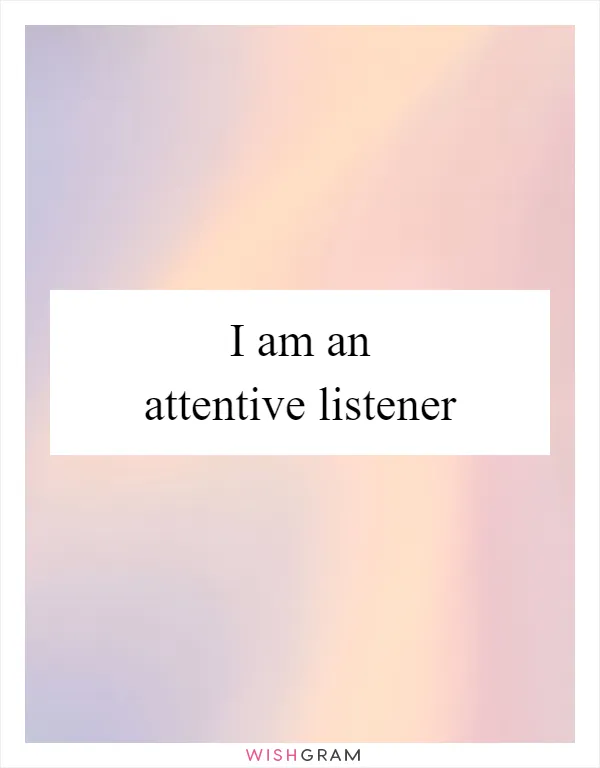I am an attentive listener
Communication is a fundamental aspect of human interaction, and being an attentive listener is crucial for effective communication. In today's fast-paced world, where distractions abound, it is increasingly important to cultivate the skill of active listening. By doing so, we can foster stronger connections, build trust, and enhance our overall communication abilities.
Being an attentive listener means giving our undivided attention to the person speaking. It involves focusing on their words, non-verbal cues, and emotions, without interrupting or formulating a response prematurely. When we truly listen, we create a safe space for others to express themselves, fostering open and honest dialogue.
One way to demonstrate attentiveness is through maintaining eye contact. By looking directly at the speaker, we convey interest and respect, showing that their words matter to us. Additionally, nodding or using affirmative gestures can indicate our engagement and understanding. These non-verbal cues reassure the speaker that they have our full attention.
Another aspect of being an attentive listener is avoiding distractions. In today's digital age, it is easy to get sidetracked by notifications, messages, or other external stimuli. However, by consciously putting aside these distractions, we can fully immerse ourselves in the conversation. This means silencing our phones, closing unnecessary tabs on our computers, and creating a conducive environment for meaningful dialogue.
Furthermore, being an attentive listener involves being patient and allowing the speaker to express themselves fully. It is important to resist the urge to interrupt or finish their sentences. Instead, we should give them the space and time they need to articulate their thoughts and feelings. By doing so, we validate their experiences and demonstrate our respect for their perspective.
Active listening also entails asking clarifying questions. This shows that we are genuinely interested in understanding the speaker's message. By seeking clarification, we can ensure that we have interpreted their words correctly, avoiding misunderstandings and miscommunication. Additionally, paraphrasing or summarizing their points can help us confirm our understanding and provide an opportunity for the speaker to clarify any misconceptions.
Moreover, being an attentive listener means being empathetic. It involves putting ourselves in the speaker's shoes and trying to understand their emotions and experiences. By acknowledging their feelings, we create a supportive environment where they feel heard and validated. Empathy allows us to connect on a deeper level, fostering trust and strengthening relationships.
